In today’s highly competitive online environment, having a strong presence in the digital landscape is essential for business success. One of the most powerful tools at your disposal is Search Engine Optimization (SEO). By harnessing the potential of SEO, you can skyrocket your website’s visibility, attract targeted traffic, and ultimately dominate your industry. In this article, we’ll explore the ins and outs of SEO and unveil the strategies that will help you unlock its full potential for your business.
Understanding the Basics: What is SEO?
Search engines have become the go-to resource for information and solutions, and understanding the basics of SEO (Search Engine Optimization) is paramount for businesses seeking online success. SEO is the driving force behind the visibility and organic traffic that can propel your website to the top of search engine rankings. But what exactly is SEO, and why is it so essential for businesses operating in the digital landscape?
At its core, SEO is the art and science of optimizing your website to improve its visibility and ranking in search engine results pages (SERPs). It involves a strategic blend of technical, content-related, and promotional techniques aimed at making your website more attractive to both search engines and users.
In a world where billions of searches are conducted every day, SEO acts as a virtual compass, guiding search engines to your website and directing targeted traffic to your digital doorstep. It involves understanding how search engines evaluate and categorize websites based on relevance, authority, and user experience, and leveraging that knowledge to position your website as the most relevant and reliable source of information within your industry.
Keyword Research: Unveiling the Language of Your Target Audience
When it comes to SEO, keyword research is the compass that guides your website’s content and optimization efforts. By uncovering the language your target audience uses when searching for products, services, or information, you can align your website with their needs and capture their attention.
Keyword research involves identifying and analyzing the specific words and phrases people enter into search engines. It goes beyond guesswork and relies on data-driven insights to determine which keywords are most relevant and valuable for your business. This process not only helps you understand the language your audience speaks but also reveals their intentions, pain points, and desires.
To conduct effective keyword research, you can leverage a variety of tools and techniques. Start by brainstorming a list of potential keywords that are relevant to your business or industry. Then, utilize keyword research tools such as Google Keyword Planner, SEMrush, or Moz Keyword Explorer to discover related keywords, their search volumes, and their level of competition.
Consider the search intent behind each keyword. Are users looking for information, purchasing, or seeking solutions to their problems? Understanding search intent is crucial for tailoring your content to match what your audience is seeking.
In addition to the main keywords, don’t forget to explore long-tail keywords. These longer, more specific phrases may have lower search volumes but often indicate a higher level of intent and can be less competitive to rank for. Long-tail keywords can help you target niche audiences and capture highly relevant traffic.
Once you have a comprehensive list of keywords, it’s time to strategically integrate them into your website’s content. Incorporate keywords naturally into your page titles, headings, meta descriptions, and throughout your website’s body text. However, be cautious not to overdo it—keyword stuffing can harm your rankings and user experience. Focus on creating high-quality, informative content that addresses your audience’s needs and incorporates keywords in a way that flows naturally.
Remember that keyword research is an ongoing process. Search trends and user behavior change over time, so regularly revisit your keyword strategy to stay up to date. Monitor the performance of your targeted keywords and adapt your content and optimization efforts accordingly.
On-Page Optimization: Crafting Content that Speaks to Search Engines and Visitors
On-page optimization plays a crucial role in SEO by ensuring that your website’s content is not only appealing to visitors but also easily understood by search engines. By fine-tuning various on-page elements, you can enhance your website’s visibility, relevance, and user experience. The following key aspects contribute to effective on-page optimization:
- High-Quality Content: Creating valuable and informative content is prioritized by search engines. Focus on producing well-researched, relevant, and original content that addresses the needs of your target audience.
- Strategic Keyword Placement: Incorporate target keywords naturally throughout your content, including in page titles, headings, and body text. Avoid overusing keywords and strike a balance between optimization and engaging content.
- Optimized Meta Tags: Craft compelling meta titles and descriptions that accurately describe your content and entice users to click through to your site. Include relevant keywords as search engines often highlight them in search results.
- Effective Heading Structure: Use headings (H1, H2, etc.) to organize your content and incorporate keywords where appropriate. This helps search engines understand your content’s organization and main topics.
- User-Friendly URLs: Create concise and descriptive URLs that include relevant keywords. Avoid using random characters or numbers that provide no context to search engines or users.
- Site Structure and Internal Linking: Ensure a clean and intuitive site structure for easy navigation by both search engine crawlers and visitors. Use internal linking to connect related pages and help search engines discover and index your content.
- Page Loading Speed: Optimize your website’s performance by compressing images, minimizing code, and utilizing caching techniques. Slow-loading websites negatively impact user experience and search engine rankings.
- Mobile Optimization: Optimize your website for mobile devices to improve user experience and rankings in mobile search results, as an increasing number of users access the internet via smartphones and tablets.
Building a Strong Backlink Profile: The Power of Off-Page Optimization
While on-page factors like content quality and keyword optimization are essential, off-page optimization, specifically building a strong backlink profile, holds significant power in boosting your website’s visibility and authority in search engine rankings.
Backlinks, also known as inbound links, are links from other websites that direct users to your site. They serve as votes of confidence and trust, indicating that other websites consider your content valuable and worth referencing. Search engines like Google view backlinks as endorsements, considering them as a crucial and key ranking factor in determining a website’s authority and relevance. Websites with a strong backlink profile tend to rank higher in search engine results pages (SERPs) compared to those with fewer or low-quality backlinks.
But how do you build a strong backlink profile?
Creating high-quality content is the first step in attracting backlinks naturally. Aim to provide unique insights, comprehensive guides, original research, or thought-provoking articles that offer value to your target audience. Actively reach out to relevant websites, bloggers, and influencers in your industry to establish mutually beneficial relationships. Offer to contribute guest posts, provide expert insights, or collaborate on content projects. By building genuine relationships and providing value, you increase the chances of them linking to your website or mentioning your content in their articles.
Leveraging social media platforms to amplify the reach of your content and submit your website to reputable online directories and business listings can also help improve your backlink profile. Avoid low-quality or spammy directories, as they can have a negative impact on your website.
Staying ahead of the game requires more than just implementing a strategy. Monitoring your efforts, leveraging analytics tools, and continuously improving your approach is crucial to ensure long-term success. By keeping a close eye on your website’s performance, analyzing key metrics, and making informed decisions, you can optimize your SEO strategy and maintain a competitive edge. Ready to take your online presence to the next level? Contact us today for all your SEO needs! Our team of experts will analyze your website, develop a tailored strategy, and implement cutting-edge techniques to boost your search engine rankings and drive more organic traffic to your business. Don’t let your competitors steal the spotlight – reach out to us now and let’s elevate your SEO game together! Your success is just a click away!



